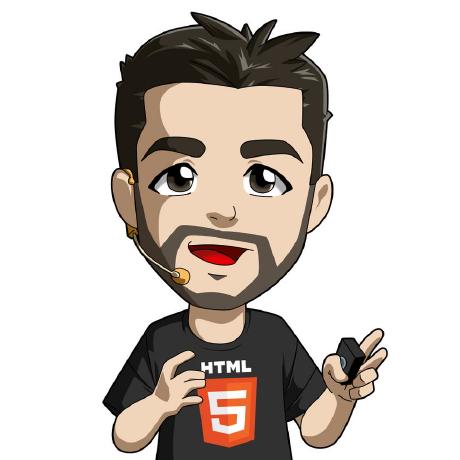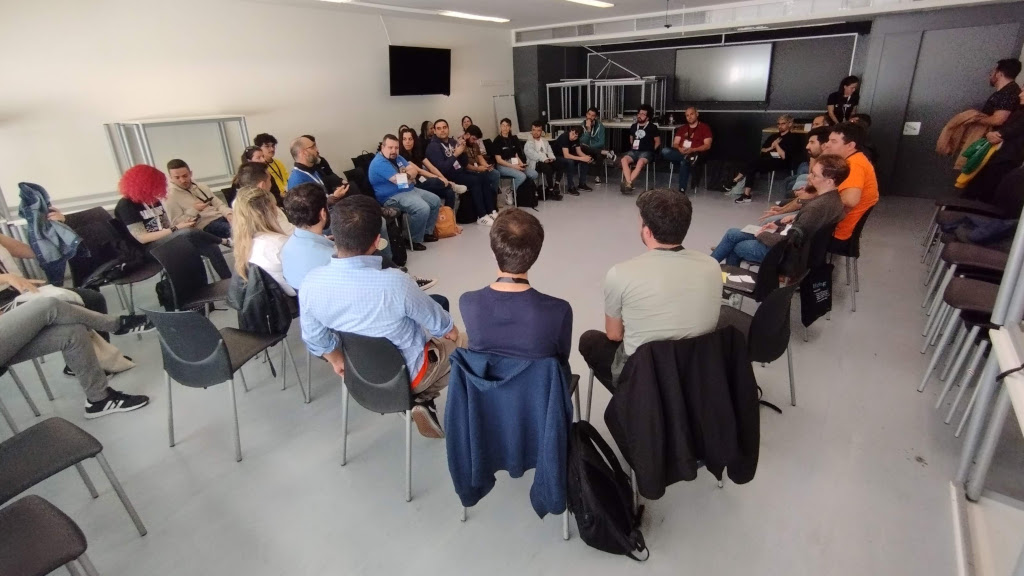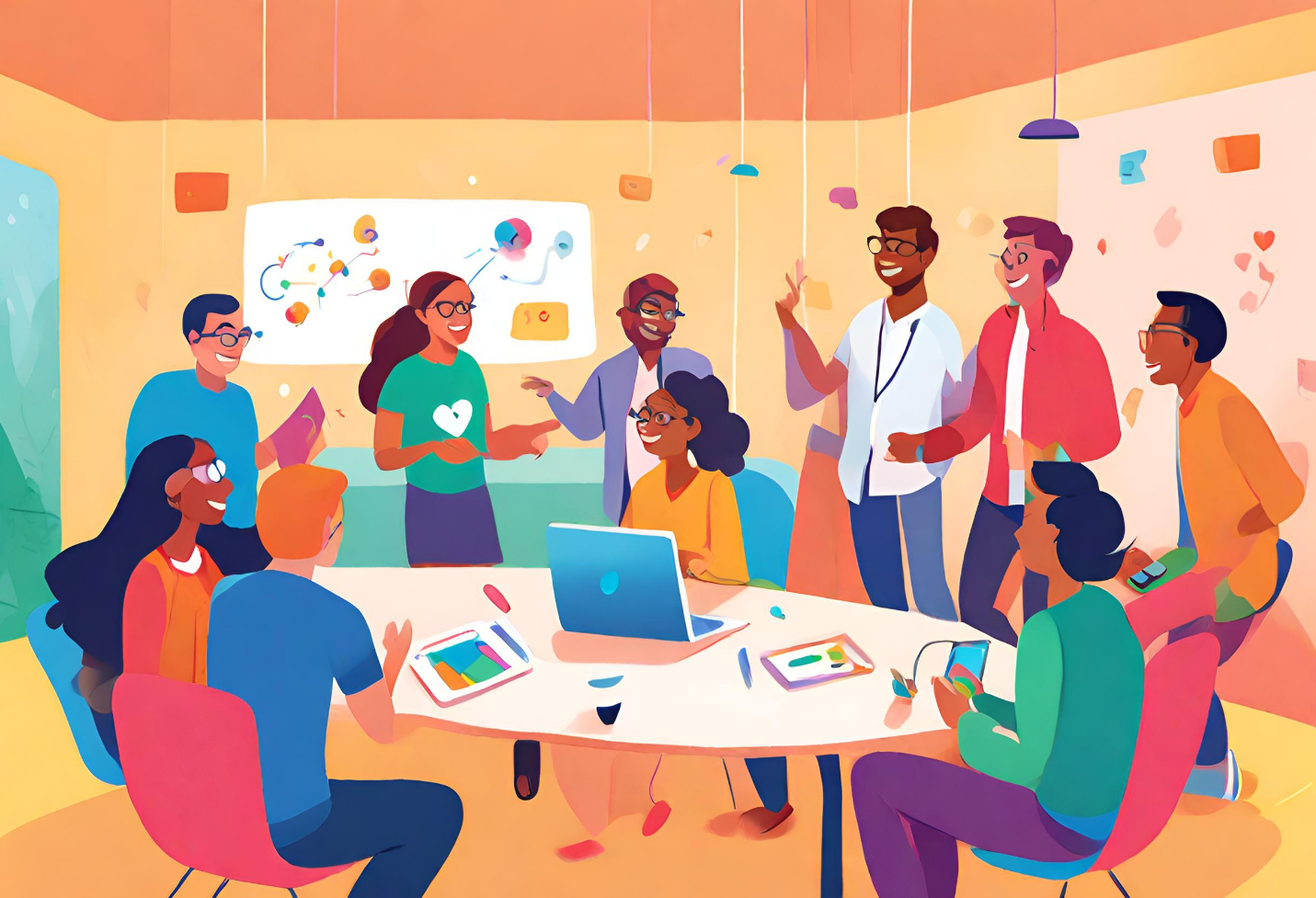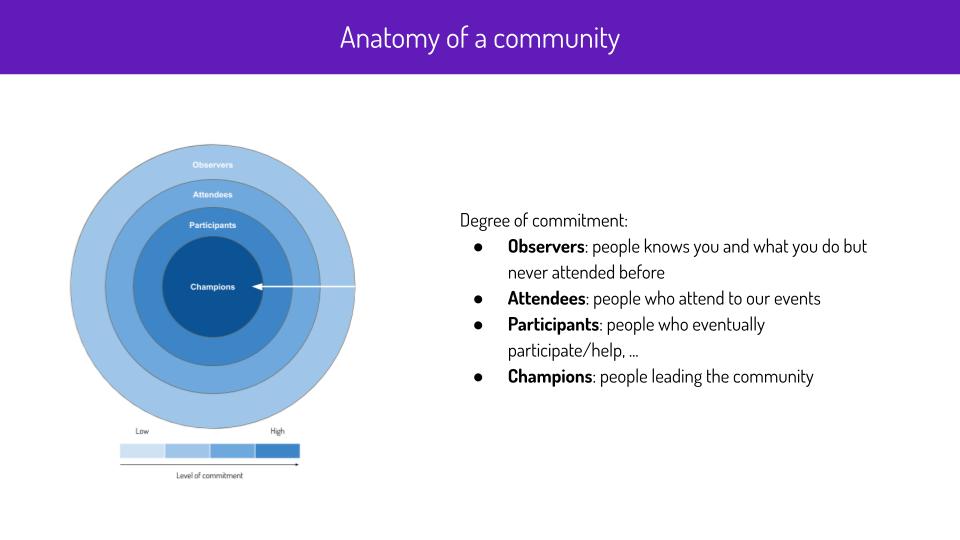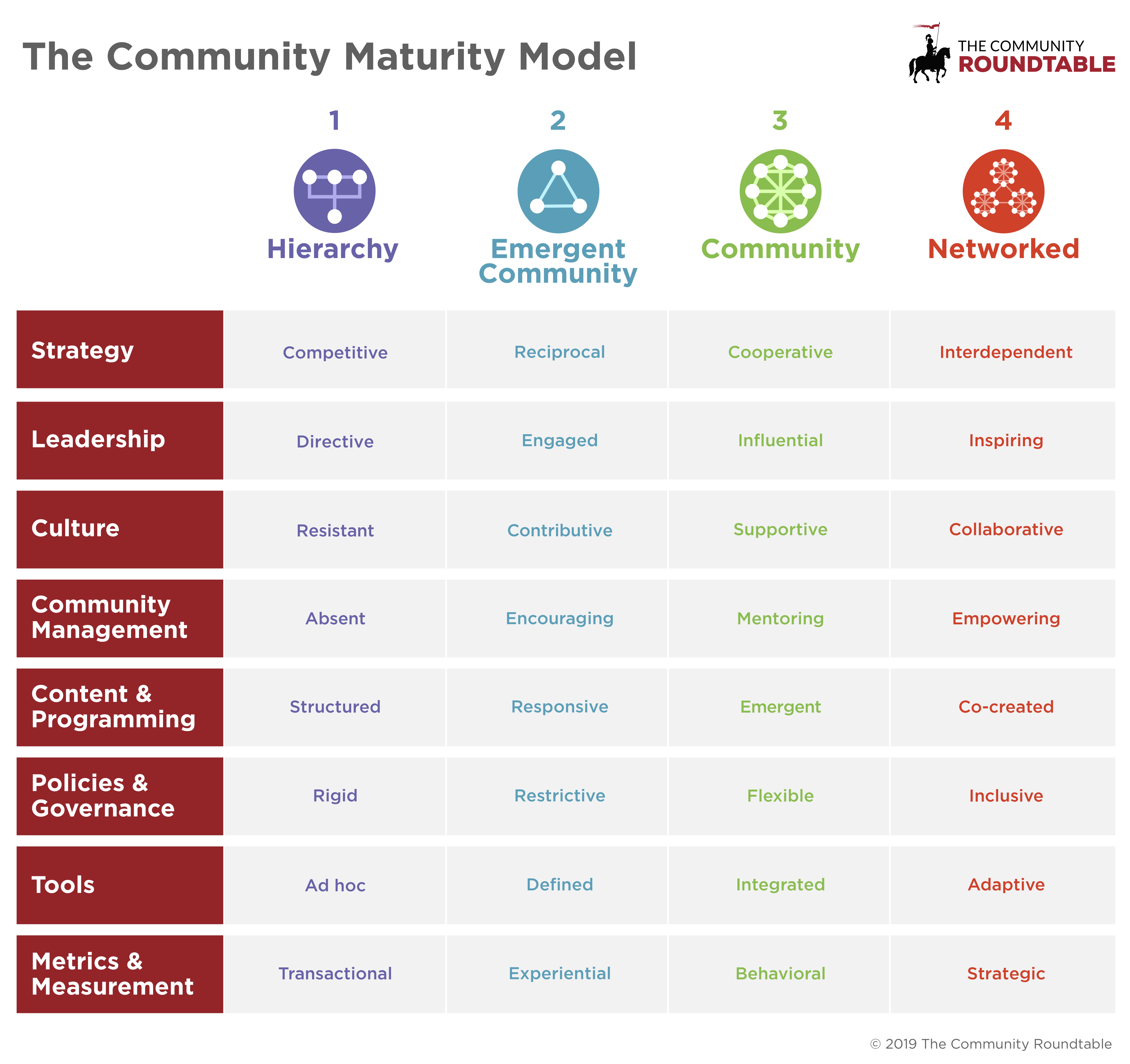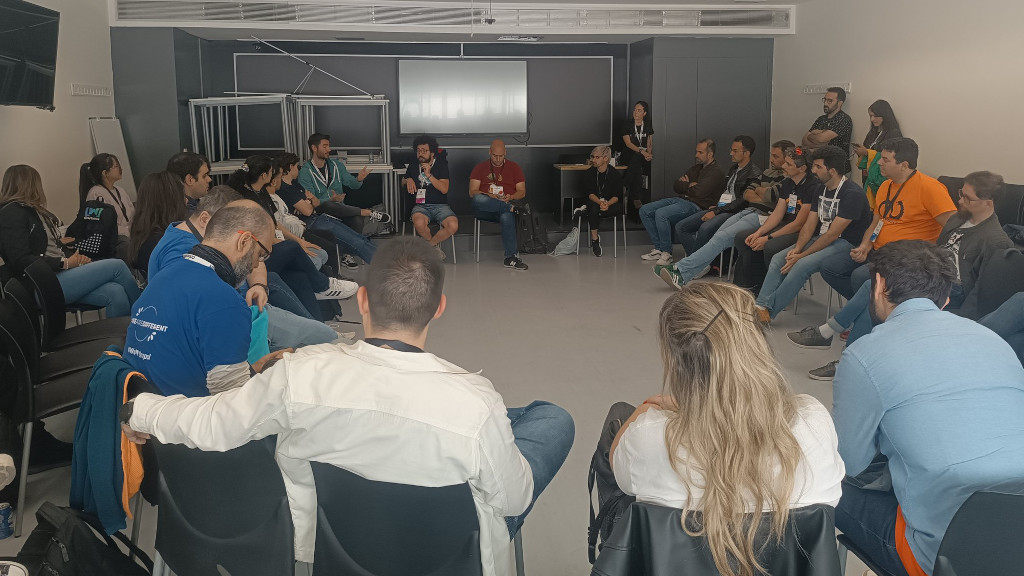Today I am writing to announce that in 🧠 My digital brain I have added a new section to collect resources for people who energize 🌈 Tech communities in the hope that they will help create more sustainable communities over time.
New resources section
Following the document I produced with help from several people(1) last year (🇪🇸) after the Open Space @ CommitConf 2023, I have published three resources:
- 📄 How to attract new people to our community
- 📄 How to keep people's interest
- 📄 How to encourage new people to give lectures
I have also created several "placeholders" on resources that I hope to develop based on input from the upcoming Open Space(2):
- 📄 How to finance communities
- 📄 How do you encourage others to energize
- 📄 Tools to manage a community
- 📄 Other resources for *community leaders
(1) At the end I have added a list of people who have contributed to this work.
(2) Next week is CommitConf 2024, where the OpenSpace on "How to sustain technical communities" that Dani Rey, Oskar Calvo and I have proposed will take place, which will be "the continuation" of last year's Open Space where some of the challenges facing technical communities were discussed.
Communities in recess?
Are the communities in recess?, are the communities having more problems now than before?
After talking to many people, and in different forums, such as the Open Space, my perception is that there is a general feeling about the drop of activity in many of the technology communities (both in Spain and abroad) in the last few years, especially since the pandemic.
By "drop of activity" I mean a mix of things, but mainly I mean a lower attendance to meetings (face-to-face and online), interactions in mailing lists/IMs, etc.
And this situation, worries those of us who energize communities.
One of the concerns that I have heard recurrently is that the average age of the people who are part of these communities is growing, or said with other words, that it is difficult to attract and engage the new generations.
Personally, I am reluctant to believe that this is because the experience offered by the communities no longer provides as much value to the new generations as other new formats, channels or "forums".
But before we continue... what is a community?
What is a community?
Or rather, what do I mean by community, or technology community?
Perhaps it is good to start with this question, since for example, during the Open Space, in my opinion, there were times when the conversation revolved around different concepts of "community".
In my case, I talk about what is known as "communities of practice", which in short are groups of people(user groups, associations, meetups...) that:
- organize regular meetings (face-to-face and/or online).
- share a passion / profession / concerns, ... for technology (software, hardware, methodologies or best practices, ...).
- mainly, seek to collaborate with each other, voluntarily and altruistically.
- they seek the common benefit above the particular one (including the particular interest of the organizations that may support/sponsor them).
- are always open to new people.
- feel part of the group and identify with it.
So, I just wanted to clarify that:
- All this is in my experience and is based primarily on the type of communities I just described.
- I believe that most of the ideas and tips shared in the documents, can be applied to this type of communities, whether they are local (in small and in big cities), as much as online/virtual, regardless of the fact that each one has its peculiarities.
Having said all of the above, it does not detract from the fact that some of the tips can also be applied to people who are in the business of disseminating online content, or people who organize large conferences.
What has changed?
Why do those of us who have been energizing communities have this feeling/perception?
To give some context, I started to get involved with this particular type of communities at the university (in ~2009), and since then I have participated, contributed, founded and co-organized quite a few communities, organizing hundreds of meetings (of all kinds).
Based on this experience, I would say that the feeling that activity is declining is mainly due to the fact that it is harder for us to provide value as we did before.
Now the offer is wider and the attention is diversifying with the increase of communities, channels/media (Discords, Slacks, social newtwords, ...), but also the rise of influencers.
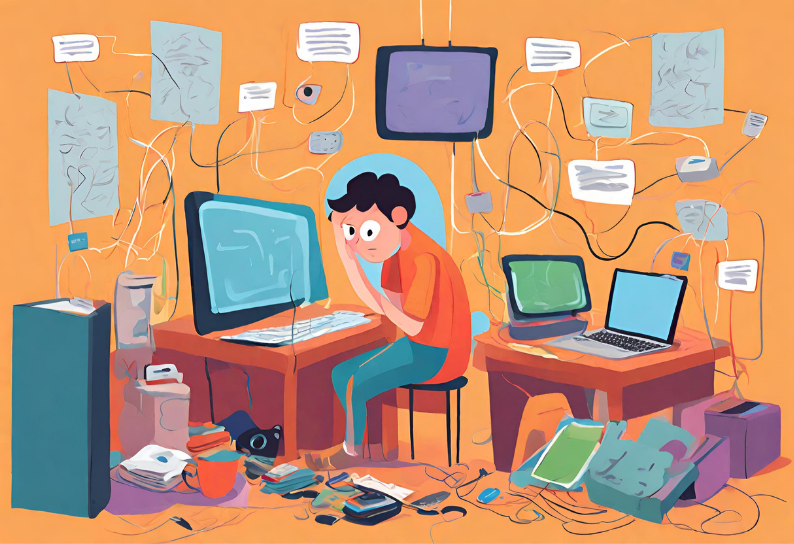
Personally I also think that digital contact is eating more ground to the physical, just see that almost everything is done through apps: order food, a cab, talk / chat, procedures with the administration, ... even flirting! 😅 and I have no doubt that this also has consequences.
That is why I believe that it is not that communities do not provide value, but that they simply have to take into account this change of context and reinvent/modernize themselves. Remember, as Albert Einstein said, "The definition of insanity is doing the same thing over and over again, but expecting different results."
I hope that sharing some of the advice I heard at the Open Space, and some of my own, will serve to help refloat some communities and help new ones to emerge.
A book I really like that talks about adapting to change is Who Moved My Cheese? 🧀🐁.
Anatomy of communities
And before I finish, I wanted to share some ideas and resources to share my understanding of communities.
The most basic are the degrees of involvement. I used to explain them this way to my Esri colleagues several years ago (~2017):
After that, Jorge taught me several theories:
- The Orbit Model, which serves as a model to explain that to increase the feeling of belonging to a group, it is necessary to increase the number of interactions and positive impacts between people, and that bonds are forged.
- The 1% rule, which I use to adjust expectations that no more than ~1% will help to energize, nor ~10% participate, although really measuring this is often quite subjective, just like trying to measure a friendship (because at the end of the day, that's what they are).
- The Community Maturity Model, an interesting framework for classifying different types of communities.
Contributions
I would like to start by thank Dani Rey (@kdarrey) from XantarDev and the Commit team, who made it possible for us to meet last year to share experiences and reflections about this very interesting topic and that has been the germ of these resources.
Below is a list of the names I was able to capture during the Open Space held in April 2023 at CommitConf.
- Attendees representing local communities and events:
- Dani Rey / @kdarrey, from XantarDev (Santiago)
- Óscar Calvo, representing Spanish Drupal Association and DrupalCamp (Madrid)
- Pablo Castro, of the [Linux Programmers and Users Group].(https://twitter.com/gpul_?lang=en) (Coruña)
- Juanma Ruiz, Roberto García Romero, Javier Pulido, Álvaro Barahona Sánchez, Francisco José Hermoso Baños, from DevopsDays Cáceres (Cáceres), CáceresTech and CáceresDevOps
- Javier Gutiérrez Fernández, from Pamplona Software Crafters
- Luis Mesa, from Databeers Sevilla
- Soraya Muñoz, of The Spanish GNU/Linux Users Association Hispalinux and Machine Learning Spain.
- Jesús, from Comunidad Python Coruña
- Pablo, from Córdoba Free Software Classroom
- Content producers:
- Noe Donato / @vamoacodear
- Carmen Ansio
- Martín (Disseminator since 2011)
- Other attendees representing members of the public from these communities:
- Tomás Giménez from coches.com
- Marta Rey, Inés Huertas, Gustavo Vargas, and others from Kairós
- Kini Software from Criteo
- Reinalia
- Fabiola
- Jordi
- Santiago B. @santyx_error
Sorry for those people I left out!!!, if you read the article you can leave me a message in the comments to add you (or make a PR) 😜😂.
And I also want to explicitly thank: Soraya Muñoz, Juanma Ruiz, and Mariano Pérez Caro for their contributions and reviews to the papers I have shared.
